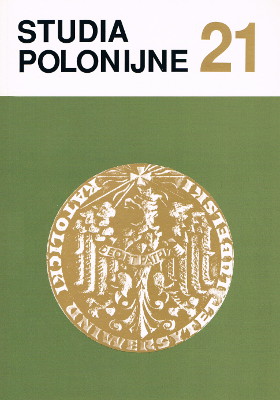Problemy adaptacyjne rodzin reemigrantów z Kazachstanu w Polsce − na przykładzie gmin krakowskich
Adaptation problems in the families of repatriates from Kazakhstan in Poland
Author(s): Katarzyna PiątekSubject(s): Social Sciences, Sociology, Migration Studies
Published by: Towarzystwo Naukowe KUL & Katolicki Uniwersytet Lubelski Jana Pawła II
Summary/Abstract: The article is an attempt at showing the specific character of the phenomenon of re-emigration and adaptation to the new living conditions in Poland of repatriates from Kazakhstan, although it is mainly limited to the people living in communes of the former Cracow province.Analysis of the adaptation process is mainly based on the general adaptation model and on the model of structural differentiation. According to these models the most important factors that influence the adaptation process are: time (the period of one’s stay in the country of re-emigration), age, sex, differences in the education level, affiliation to an ethnic group, religion and the language used in the country of one's origin. According to the presented theories it is these factors that decide about whether the adaptation process will be successful or not.The research results made it possible to verify the above mentioned theoretical models and finding those factors that make the process of adaptation easier or more difficult for the re-emigrants. According to the findings the most important factors making adaptation easier are: sex (psychophysical conditions of women who predominate in the whole re-emigrant population), education (predominance of people with higher and secondary education) professional activity (having a paid job), religion (predominantly Catholics), general knowledge of the Polish language, culture and tradition, Polish roots and the length of stay in Poland. Among the factors that make adaptation more difficult the following appeared most often: age (more persons at post-productive age), language difficulties, formal-legal troubles, not enough knowledge about Poland, different climate.Eventually, as the studies have shown, the level of education, professional activity, family status and legal status, individual traits and predispositions as well as the level of knowledge about Poland among the respondents give a great chance for successful adaptation, and the only trouble that can be noticed is the average age of the people who settle in the Cracow province communes. The subject themselves positively assess the level of their adjustment to life in Poland as well as the degree to which they are satisfied with coming to Poland. Undoubtedly this also has effect on consolidation of their sense of national identity, which results in the fact that most of them feel as Poles with full rights, and they treat Poland as their only homeland.The analysis of the adaptation process that was made in the article was based on the four adaptation planes (physical, cultural, social and personal) that are distinguished by M. L. Kovacs and A. J. Cropley (1975). Re-emigrants cope with cultural and social levels best. On the other hand, their situation is the most complicated on the level of their personal adaptation, especially if we consider it with the subjects’ sense of their national affiliation and identity. However, with time the degree of adaptation on various levels becomes more equal and this causes that the subjects assess the possibility of full adaptation positively.The considerations considered in the article do not give the right to make far-reaching statements; however, on the basis of the quoted facts it can be said with a high degree of certainty that return of ethnic Poles from Kazakhstan and their adaptation process has great chances of success. They are the greater the more open kind the Polish society will be towards the re-emigrants from the East.
Journal: Studia Polonijne
- Issue Year: 2000
- Issue No: 21
- Page Range: 173-188
- Page Count: 16
- Language: Polish

